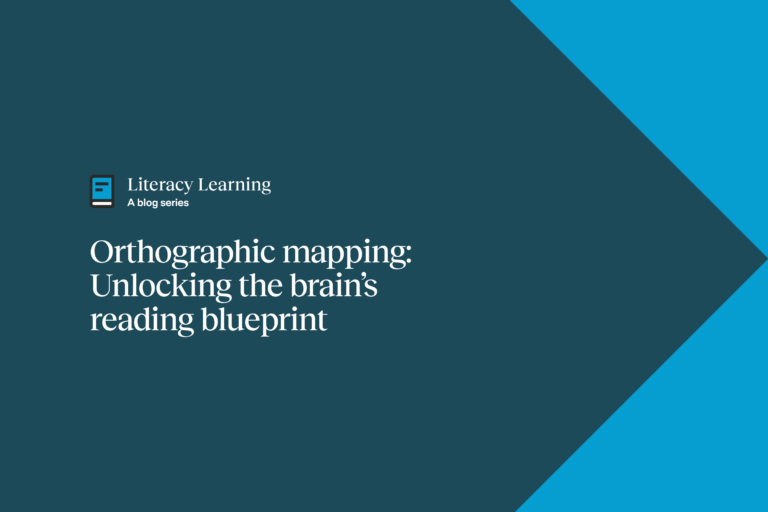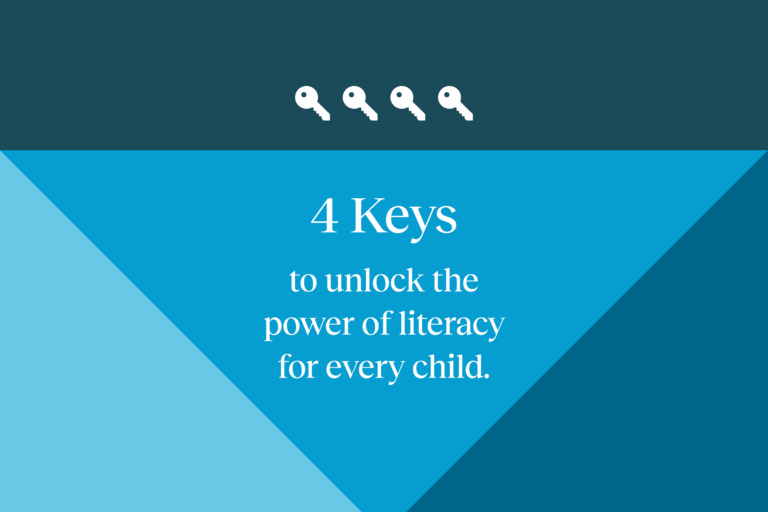Structured literacy programs
95 Percent Group’s structured literacy programs are evidence-based in their approach and provide prescriptive, explicit, and systematic instruction in the critical foundational literacy skills.

Structured literacy programs for every tier of instruction
Tier 1: Core Instruction
Students need explicit, systematic phonics instruction and practice to achieve reading success. Our 95 Tier 1 Phonics Solution is easy to use, and proven to reduce the need for intervention.
Tier 2: Intervention
Assessments, grouping, instruction and practice all in one place to move students out of intervention quickly and develop strong readers.
Tier 3: Intensive Intervention
Identify and target foundational skill gaps to overcome barriers for students who need extra support, including those with dyslexia.
Spotlight Washington: Closing gaps with structured literacy
In Washington, schools are closing literacy gaps by implementing structured literacy practices that give students the systematic support they need to read with accuracy and confidence. Focusing on intentional instruction and aligned systems is helping learners build stronger, more durable reading skills.
I was in one of our 4th grade classrooms yesterday taking some photos and capturing some student voices, and kids were throwing around phrases like ‘where’s the syllabic boundary?’ All I could think was, ‘OK, I’m loving this!’
Abbey Espeguard Instructional coach, West Mercer Elementary
One of the most effective tools that we’re using in Fulton County Schools is 95 Phonics Core Reading Program. That has been a game changer for our students and for our teachers. Honestly, if I tried to remove that program from our teachers’ hands these days, they would fight me. And when I go into classrooms, I see students learning at levels that they haven’t learned in previous years. It’s truly been transformational.
Mike Looney, PhD
How writing and reading work together: The key to strengthening literacy skills
Writing and reading are deeply connected, and strengthening both together helps learners build broader literacy skills and deeper understanding. When instruction intentionally links these practices, students become more confident communicators and stronger, more capable readers.
Writing plays an essential role in literacy development, serving as both a foundation for academic success and a tool for lifelong learning.

Jennifer Delano-Demzik, EdD Literacy expert and consultant, 95 Percent Group
Scarborough’s Reading Rope: A practical guide for building skilled readers
Scarborough’s Reading Rope unpacks the many strands that contribute to skilled reading and offers practical guidance for strengthening each one. When educators use this framework with intentional instruction, students build the integrated skills needed for fluent, confident reading.
The upper strands of the rope are never fully complete; we continue to develop these over time as we have life experiences. These are skills that we continue to develop over time. Even as adults, we’re still developing background knowledge in certain topics and improving vocabulary. The upper strands will constantly grow as we become more skilled readers.

Samantha Chatman Implementation Manager, 95 Percent Group
The latest in structured literacy
Four keys to unlocking literacy across tiers of instruction
Reading unlocks opportunity for every child. But lasting literacy gains require more than programs and materials; they require a system that works. Learn how Lexington Public Schools implemented the One95 Literacy Ecosystem and uncover four proven keys to building a successful, tiered literacy ecosystem.
I am SO excited for the initial data we are getting from our students. We are seeing tremendous growth. The consistency from Tier 1 to Tier 2 is unparalleled to anything we have ever used. We feel that’s the secret sauce. We are so grateful for this program!
Ann Foster Elementary Curriculum Coordinator (2015 – 2023), Lexington Public Schools
Put science into practice
Our experienced 95 Percent Group network of consultants offer courses on a wide variety of literacy topics and provide comprehensive product training to improve learning outcomes.
80%
of early elementary teachers still encourage students to use pictures or context clues to identify unfamiliar words.
Phonics instruction is far from dull and dreary. Children love to learn about words and their hidden properties and patterns.
Laura Stewart
Stay ahead of the curve
Get the latest insights, resources, and industry news delivered straight to your inbox.
By completing this form, you indicate your consent to receiving marketing communications.








